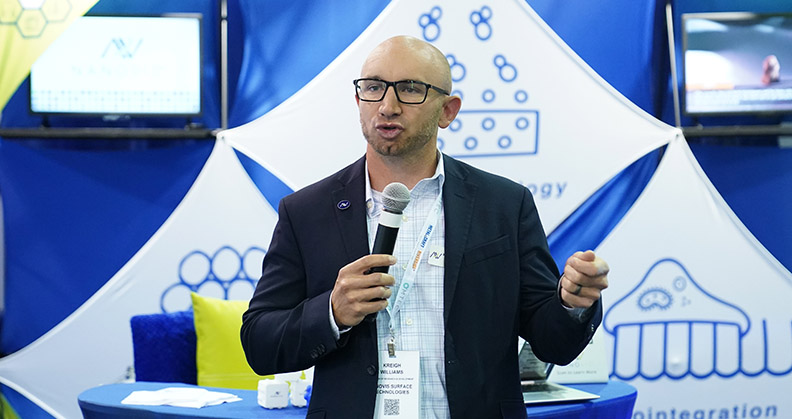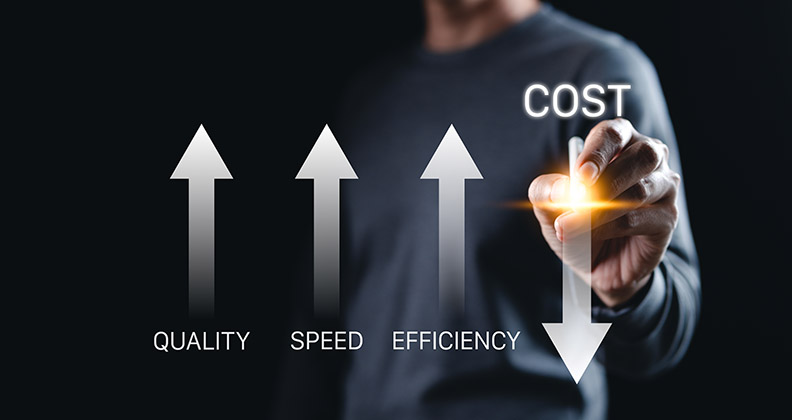
The orthopedic industry is rapidly changing. Whether you specialize in engineering, sourcing, operations or regulatory, keeping pace with market demands and new technologies makes for a high-stress work environment — especially when your work impacts people’s quality of life.
Constant stress can negatively affect your job satisfaction and seep into other parts of your life. But it doesn’t have to be that way.
Setting the Tone
Research shows that adopting a growth mindset about your work environment and place in it can make you a happier, more productive employee and ultimately lead to more career success. What’s more, the flexibility inherent in a growth mindset provides the perfect avenue for breaking new ground.
With a growth mindset, inevitable change in a fast-paced industry like orthopedics becomes a catalyst, not a crisis.
A growth mindset is the belief that yourself or others can grow and improve through effort and coaching. This contradicts a fixed mindset, which is the belief that abilities are innate and unchanging.
Nettie Nitzberg, Chief Learning and Leadership Officer at Saterman Connect, said a growth mindset allows you to be open to new ideas and approaches, adapt to change and learn from failures. She said this can foster a willingness to try new things, embrace challenges and be more flexible in your thinking, ultimately leading to personal and professional growth.
Having an eye for a growth mindset in your workplace is key to taking advantage of opportunities for professional development. A corporate culture where a fixed mindset dominates is likely to be characterized by internal competition and an accompanying fear of taking risks, according to Vinita Bansal, founder of TechTello, author and a professional coach for employees in emerging markets.
Bansal developed three strategies leaders can use to promote a growth mindset in the workplace through their actions:
- Create learning opportunities. Come up with initiatives that allow employees to develop new skills, including those out of their perceived area of expertise that are necessary for their professional growth. Encourage employees in different departments to learn from each other. Focus on the development of skills as collaboration, communication, conflict management, prioritizing and strategic thinking.
- Use the right messaging. Reward workers for hard work, strategic thinking, taking on challenges and perseverance. Let them know you value learning and growth more than talent and success. Celebrate failures and learn from them.
- Overcome groupthink. Avoid conforming to ideas rooted in conservative thinking, ignoring signs of potential failures and making decisions with incomplete information. Champion progressive thinking and focus on future demands without being afraid to take a hard stance.
Bansal noted leaders who empower their employees to develop critical thinking skills for better decision-making develop a team filled with workers who value challenges and opportunities. These types of employees practice their skills, aren’t afraid to voice their opinions and enjoy constructive disagreements.
By embracing a growth mindset, leaders create an environment where employees are comfortable expressing ideas because any failures are coached, not penalized, and successes advance the whole team. Seeking out this kind of culture is an essential first step to the self-advocacy that is necessary for career success.
Taking the Next Step
The personal element of a growth mindset comes from willingness to seek out new opportunities and grow in many directions. As the landscape of your industry changes, you must be flexible enough to change with it.
There are more ways to take advantage of a growth mindset now than ever before.
“You can take online courses or get on a Zoom call with a career coach or consultant,” Nitzberg said. “There are opportunities for self-education that weren’t available to previous generations of workers.”
She described these opportunities as meeting an essential demand for the newest generation of workers who adopt a growth mindset in their desire to learn skills and responsibilities that complement their existing job descriptions and enrich their own abilities.
Nitzberg said that self-awareness is the most important factor in developing a growth mindset. It takes a tremendous amount of emotional intelligence to identify places in your work patterns where you have become inflexible and unwilling to adapt.
Once you have uncovered those areas, perhaps through a workplace assessment or feedback from co-workers and managers, you can begin to explore new professional avenues through collaboration and reflective self-improvement.
The growth mindset is a powerful tool for success in your career. It allows you to embrace challenges, seek out new experiences and focus on progress. By embracing a growth mindset, you can open yourself up to new opportunities for personal and professional development.
HT
Heather Tunstall is a BONEZONE Contributor.




